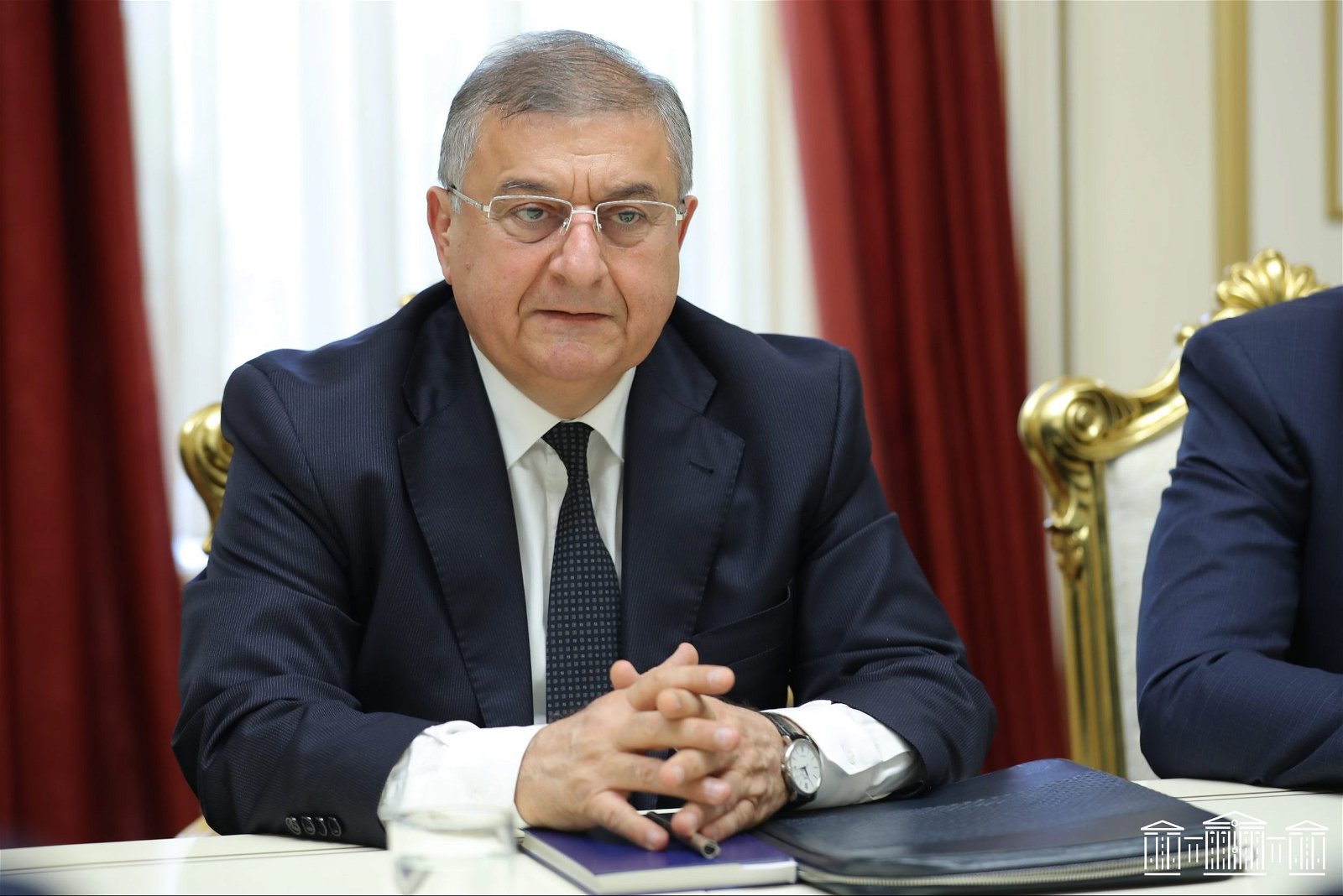
Armenia’s top judicial watchdog has failed to elect a replacement for its chairperson, who resigned last week after the release of a tape in which he threatened his predecessor to step down.
On June 20, former head of the Supreme Judicial Council (SJC) Ruben Vardazaryan released a recording from February 2021 in which fellow SJC member Gagik Jhangiryan threatened him with criminal charges if he refused to resign. The publication of the tape has sparked widespread outrage and accusations that the government exercises undue influence over the judiciary. The SJC is an independent body with wide-ranging powers, including overseeing the nomination and dismissal of judges.
In the 14-minute recording, Jhangiryan can be heard using profane language and pressuring Vardazaryan to step down so that “bad things” do not happen to him.
“I’m telling you, forget about everything. Put everything aside. You have kids. You have a home,” Jhangiryan says in the tape.
Jhangiryan can also be heard saying that he was attempting to prevent former President Robert Kocharyan from returning to power.
Jhangiryan served as deputy prosecutor general under Kocharyan. He was arrested in the final days of Kocharyan’s presidency on charges of obstruction of justice. Days before his arrest, Jhangiryan voiced his support for Levon Ter-Petrosyan in the 2008 presidential election against Serge Sargsyan.
In April 2021, two months after the recorded conversation took place, the SJC voted to suspend Vardazaryan on charges of obstruction of justice and replace him with Jhangiryan. Vardazaryan continued to formally hold his post for the next 14 months, while his responsibilities were passed over to Jhangiryan.
On June 23, just days after the release of the tape, the SJC announced its decision to terminate Vardazaryan’s powers as chairman of the SJC on the basis of a “significant disciplinary violation.” Jhangiryan officially took over his position as chairman.
Vardazaryan argues that the government blackmailed him to resign in order to replace him with Jhangiryan, who is a close ally of Armenian Prime Minister Nikol Pashinyan.
Jhangiryan has not denied the authenticity of the recording.
The SJC announced that Jhangiryan has resigned as its chairman on July 1. The council attributed his decision to “healthcare problems” and did not provide any more information. The council held a vote on July 4 to replace Jhangiryan yet failed to elect a new chairperson.
Previously on June 30, the SJC had said that it would not launch disciplinary actions against Jhangiryan, stating that it would be “impossible to initiate disciplinary proceedings against a judge or a member of the Supreme Judicial Council on the basis of an edited recording.”
Opposition politicians and civic activists have decried Jhangiryan’s actions and the lack of a response from the government, criticizing the scandal as the latest example of the government’s attempt to exert control over the judiciary.
Nina Karapetyants, head of the Helsinki Association for Human Rights, said that the scandal reveals the need for wide-ranging reforms to guarantee the independence of the judiciary, which the Pashinyan administration has failed to do.
“Evaluating, transitional justice, vetting, lustration—we have no other tools,” Karapetyants said during an interview with CivilNet on June 21. “All the post-Soviet countries that went through this painful, sad and difficult process, only they were able to achieve some positive results.”

Supporters of the two opposition parties, the Armenia Alliance and the I Have Honor Alliance, marched to the European Union office in Yerevan on July 4 to protest what they see as its silence on the judicial crisis.
The opposition has consistently accused the judiciary of political repression following several series of arrests of opposition political figures, which they reject as politically motivated. Protesters marching to the EU building held pictures of opposition political figures who have been arrested under Jhangiryan’s tenure.
“The ideas held by the European Union are violated in Armenia through this embassy. They shut their eyes to the illegalities, political persecutions, attacks on courts, and the practice of changing laws by the will of one person,” Armenia Alliance MP Gegham Manukyan said at the protest. “Surely this embassy will send a message to Brussels that Armenian citizens held a demonstration against the embassy today, but it is interesting what they will write, for what reason the dignified citizens of Armenia say shame to the EU ambassador?”
The National Assembly voted on July 1 to remove Armenia Alliance deputies Ishkhan Saghatelyan and Vahe Hakobyan from their posts as deputy speaker and head of the economic affairs committee, respectively. The Civil Contract Party had previously threatened to strip opposition deputies of their mandates for excessive absenteeism. MPs representing the Armenia Alliance and I Have Honor Alliance have boycotted parliamentary sessions since April to participate in street protests to demand the government’s resignation.
“Administrative positions in the National Assembly are not ends in themselves. They are a tool to support opposition activities,” the two opposition parliamentary factions said in a joint statement following the dismissal. “With this behavior, the authorities once again demonstrated that they are concerned solely with posts, engaged with persecutions, devoid of any ability to confront challenges facing the country, lack legitimacy, and do not represent the interests of Armenia and Artsakh. Under these circumstances, their removal is inevitable.”
Pashinyan commented on the judicial scandal for the first time during a press briefing on June 27. He said that the publication of the recording overshadows the judicial reform process taking place.
“I am always saying that our biggest problem is the judicial system, that we do not have real successes there,” Pashinyan said.



Be the first to comment